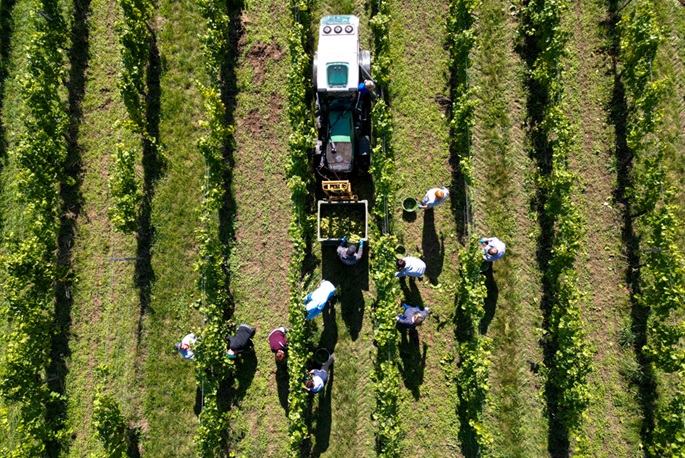Germany has recorded its smallest wine harvest in 15 years, the final estimate released on Tuesday from the German Wine Institute (DWI) showed, reported dpa.
This year’s harvest is expected to yield 7.3 million industry-standard hectolitres of grape must – even less than estimated about a week ago. Grape must is the freshly crushed juice used in the first stage of making wine. A hectolitre is equal to 100 litres.
The last time winemakers in Germany’s 13 wine-growing regions produced a smaller harvest was in 2010, with 7.1 million hectolitres, DWI spokesman Ernst Büscher said in Bodenheim in the west German wine-growing state of Rhineland-Palatinate.
This year’s yield is projected to be 7 percent lower than the previous year and 16% below the 10-year average of 8.7 million hectolitres.
Recently, the Federal Statistical Office had estimated a yield of around 8.2 million hectolitres for this year based on preliminary data.
Significant losses in top wine-growing regions
The sharp decline is primarily attributed to significantly lower yields in Germany’s four largest wine-growing regions: Rhine Hesse, Palatinate, Baden and Württemberg, Büscher explained.
“Smaller grape berries, below-average must yields and, above all, intensive grape selection following heavy rainfall in mid-September have led to an estimated 23% drop in harvests in Rhine Hesse alone, or nearly 600,000 hectolitres compared to the 10-year average,” he said.


Dining and Cooking